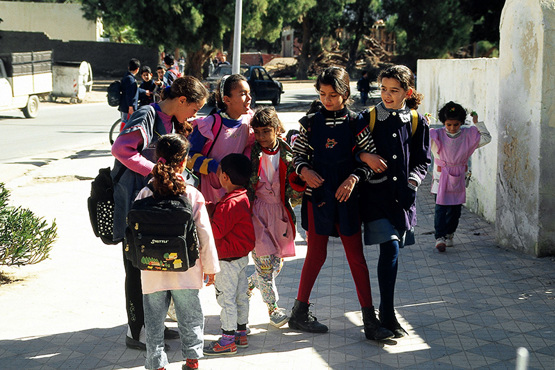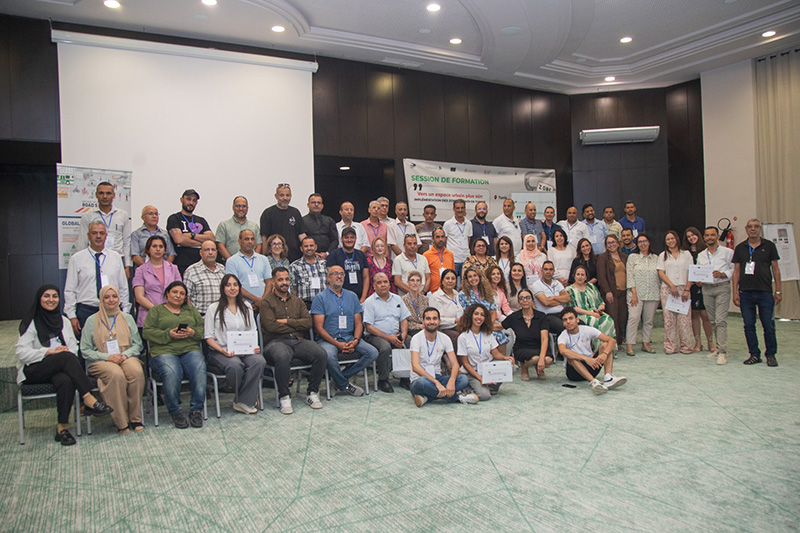Tunisia commits to safe school zones, supported by the FIA Foundation

Advocacy by road safety NGO Les Ambassadeurs de la Securité Routière (ASR), supported by the FIA Foundation, has led to significant commitments by Tunisian authorities toward the implementation of safe school zones.
As part of ASR’s ‘Safer Roads for Children and Young People’ project, a two-day capacity-building workshop on 30km/h school zones was recently held for 85 engineers and technicians from municipalities and regional offices of the Ministry of Equipment across the four governorates of Greater Tunis. Experts from the Ministry of Interior - Tunisia Road Safety Observatory (ONSR), the Ministry of Equipment, the Ministry of Transport, the Urban Planning Agency of Greater Tunis, Tunisia Association of the Roads (ATR), ASR, and the FIA Foundation shared their knowledge and expertise. The workshop strengthened coordination and stakeholder engagement, addressing awareness and education, urban planning and infrastructure, monitoring, sustainability and enforcement. Participants gained hands-on experience in identifying high-risk areas around schools and pedestrian zones, as well as in designing 30km/h zones tailored to local contexts.
The workshop culminated in the official endorsement of the Tunisian Safe School Zone Guide, which the ONSR now hosts for nationwide dissemination and public access. The guide will support local authorities, engineers, and relevant stakeholders in implementing safe infrastructure upgrades and 30km/h speed limits, integrating legal, technical, and administrative frameworks, and design principles tailored to Tunisia’s context.

Alongside the national endorsement of the guide, the governorate of Tunis has seen municipalities committing financially to safe school zones. The municipality of Sidi Hassine has included 30km/h school zone improvements into its 2025 budget, allocating USD 250,000 to infrastructure improvements around five of its school zones. The municipality of Tunis has also committed to funding the installation of signage, safety barriers, and speed signs around its schools, allocating a budget of nearly USD 260,000. The first 30km/h school zone implemented in Carthage has already led to a visible shift in driver behaviour and an increase in perceived safety.
These commitments mark an important milestone in ASR’s ‘Safer Roads for Children and Young People in Tunisia’ project, which is gaining traction in Tunis and generating significant interest in neighbouring governorates with high road fatality rates, where safer school zone implementation is increasingly seen as a vital step forward.
Afef Ben Ghenia, ASR President, said: “This initiative is not just about infrastructure; it’s about protecting futures. Each 30 km/h zone is a commitment to the safety and dignity of our children.”
Rita Cuypers, FIA Foundation Director of Partnerships, said: “We welcome the growing commitment from Tunis municipalities to invest in safe school zones. These actions reflect the impact of ASR’s powerful advocacy and the strength of intersectoral collaboration. With tools like the Safe School Zone Guide, Tunisia is beginning to reshape urban environments to protect and empower its children and youth.”



